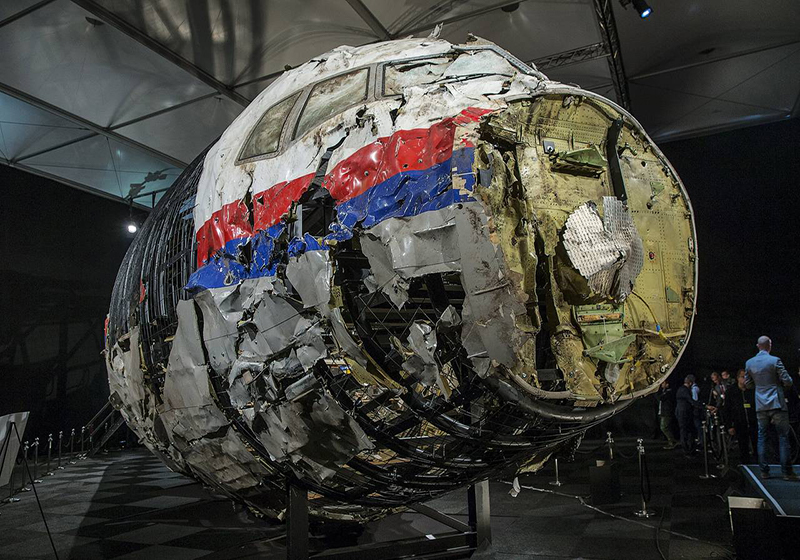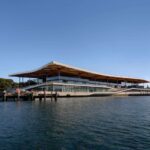On Monday, May 12, the United Nations’ International Civil Aviation Organization (ICAO) Council ruled that Russia bears responsibility for the downing of Malaysia Airlines Flight MH17 over eastern Ukraine in 2014. This tragic incident, which shocked the world, resulted in the deaths of all 298 passengers and crew members on board, including 196 Dutch citizens and 38 Australian nationals or residents. The disaster not only brought immense sorrow to countless families but also sent shockwaves through global politics and aviation security.
On July 17, 2014, Flight MH17 departed from Amsterdam’s Schiphol Airport, bound for Kuala Lumpur International Airport. As the aircraft flew over Ukraine’s Donbas region, it was struck by a Russian-made Buk missile. The plane disintegrated mid-air and crashed, killing everyone on board. At the time, the area was engulfed in fierce fighting between pro-Russian separatists and Ukrainian forces. Notably, the airspace was still officially open for civilian aviation, making the incident all the more unexpected and tragic. Witnesses described widespread wreckage, with debris scattered over a large area and nearby villages suffering serious impacts. Many residents were deeply traumatized by what they saw.
The international community responded with grave concern. The Dutch Safety Board led an investigation into the cause of the crash, with participation from Australia, Malaysia, Ukraine, the UK, the US, and Russia. On October 13, 2015, the Dutch Safety Board released its final report, concluding that the aircraft was downed by a Buk missile launched from eastern Ukraine. The cockpit was directly hit, instantly killing the three crew members inside and causing the front of the aircraft to break apart. The fuselage disintegrated in mid-air, with the midsection and tail falling separately to the ground. However, the report did not assign blame to a specific party. That same day, Russian arms manufacturer Almaz-Antey released its findings, asserting that if a Buk missile was used, it must have been launched from an area controlled by the Ukrainian military. Ukrainian authorities countered by holding a press conference claiming the missile was fired from Snizhne, a town under separatist control, and accused Russia of a premeditated act. The conflicting claims added to the confusion, and the truth remained mired in dispute as both sides continued releasing new information.
Meanwhile, a parallel criminal investigation progressed. On June 19, 2019, the Joint Investigation Team (JIT) — comprising the Netherlands, Malaysia, Ukraine, Belgium, and Australia — announced that three Russians and one Ukrainian were responsible for transporting the Buk missile system into Ukraine. The four were charged with murder. The JIT revealed their identities and photos, noting that three were linked to Russian intelligence, while the Ukrainian had served as a commander in the self-declared Donetsk People’s Republic. However, due to laws in Russia and Ukraine prohibiting the extradition of nationals, the Netherlands did not pursue extradition. Russia’s Foreign Ministry dismissed the charges as groundless and pledged to assist in uncovering the truth. Malaysia’s foreign minister also stated that there was not yet sufficient evidence and that investigations should continue.
In November 2022, a Dutch court convicted two Russians and one Ukrainian in absentia for their roles in the attack. Russia denounced the verdict as “shameful” and refused to extradite its citizens. The ruling sparked global debate, with legal experts questioning the fairness of trials held without defendants present.
ICAO’s latest ruling has reignited international attention. Dutch Foreign Minister Kaspar Veldkamp issued a statement calling the decision a significant step toward truth, justice, and accountability for the victims and their families. He stressed that it sends a clear message: no country that violates international law will escape consequences. He also stated that the Netherlands and Australia expect ICAO to direct Russia to begin negotiations on compensation. The Dutch government has established a special coordination group to liaise with victims’ families and understand their expectations.
Australian Foreign Minister Penny Wong also welcomed the decision, urging ICAO to act swiftly in determining remedies. In her statement, she said, “We call on Russia to finally take responsibility for this horrific act of violence and to make reparations under international law.” In Australia, grassroots campaigns have emerged urging the government to intensify pressure on Russia to secure compensation for the victims’ families.

ICAO, headquartered in Montreal, Canada, is a specialized UN agency responsible for setting international civil aviation standards and rules. While it lacks enforcement powers, its rulings carry significant moral weight, and its standards are adopted by 193 member states. According to Article 84 of the Chicago Convention, ICAO has the authority to resolve disputes between member states. However, in its 78-year history, only five disputes have been handled under this provision, and ICAO traditionally avoids politically sensitive matters, focusing on technical issues. Article 3 bis of the Convention, amended in 1984, clearly states that member states “must refrain from using weapons against civil aircraft in flight.” A case can be brought before ICAO and subsequently appealed to the International Court of Justice. ICAO’s latest ruling marks a rare, bold stance on a highly political case, sparking fresh debate on the organization’s role and capacity in international conflict resolution.
Russia has consistently denied involvement in the MH17 tragedy, dismissing investigations and rulings as biased. As of now, Moscow has not officially responded to ICAO’s latest decision. However, some Russian political analysts have suggested the ruling is a politically motivated maneuver by the West to isolate and punish Russia using international institutions.
The ICAO decision represents a new development in assigning responsibility and addressing compensation for the MH17 incident. In the coming weeks, ICAO’s Council is expected to review specific compensation mechanisms to be pursued with Russia. The international community will be closely watching how the situation unfolds. The European Union has already stated it will monitor ICAO’s next steps and may consider additional sanctions against Russia. Tensions between Russia and Western nations — already at a low — are likely to deepen. Moreover, the MH17 disaster has reignited concerns about the safety of civilian flights over conflict zones. Many countries and airlines are now reevaluating their route planning to avoid dangerous airspace, potentially reshaping global aviation operations and safety standards in lasting ways.












